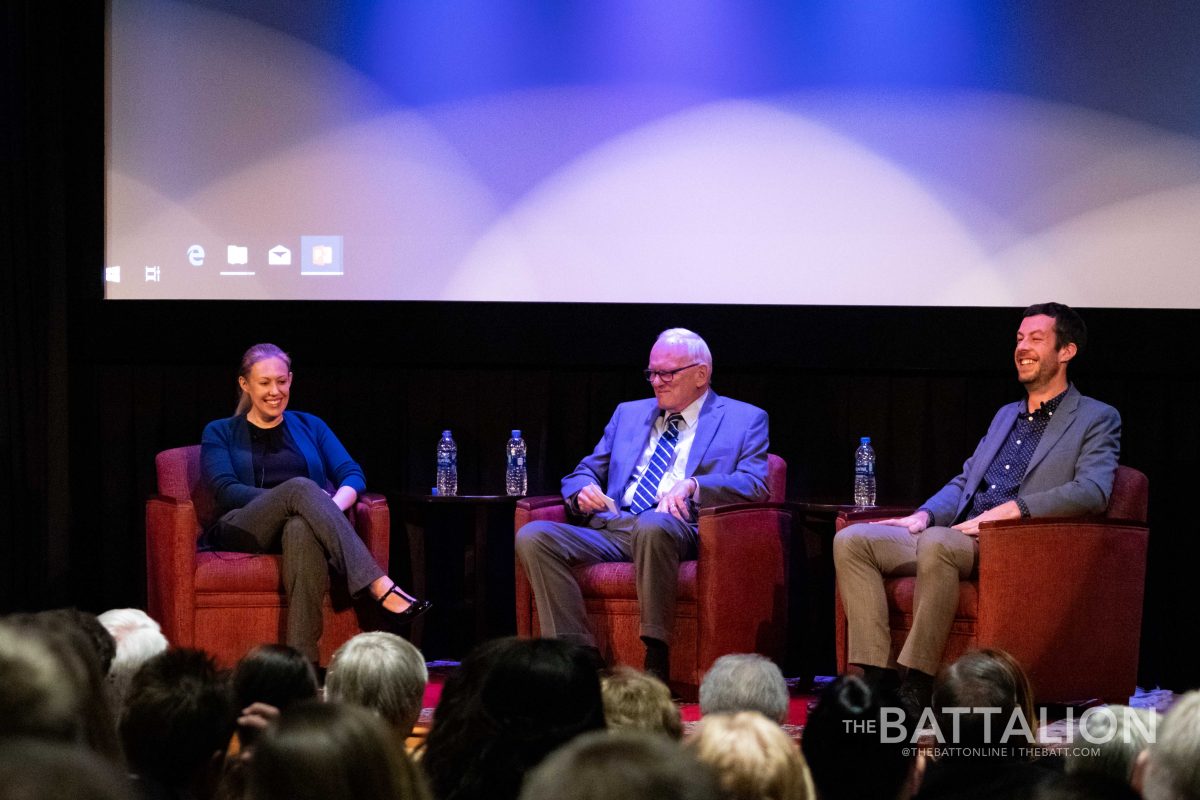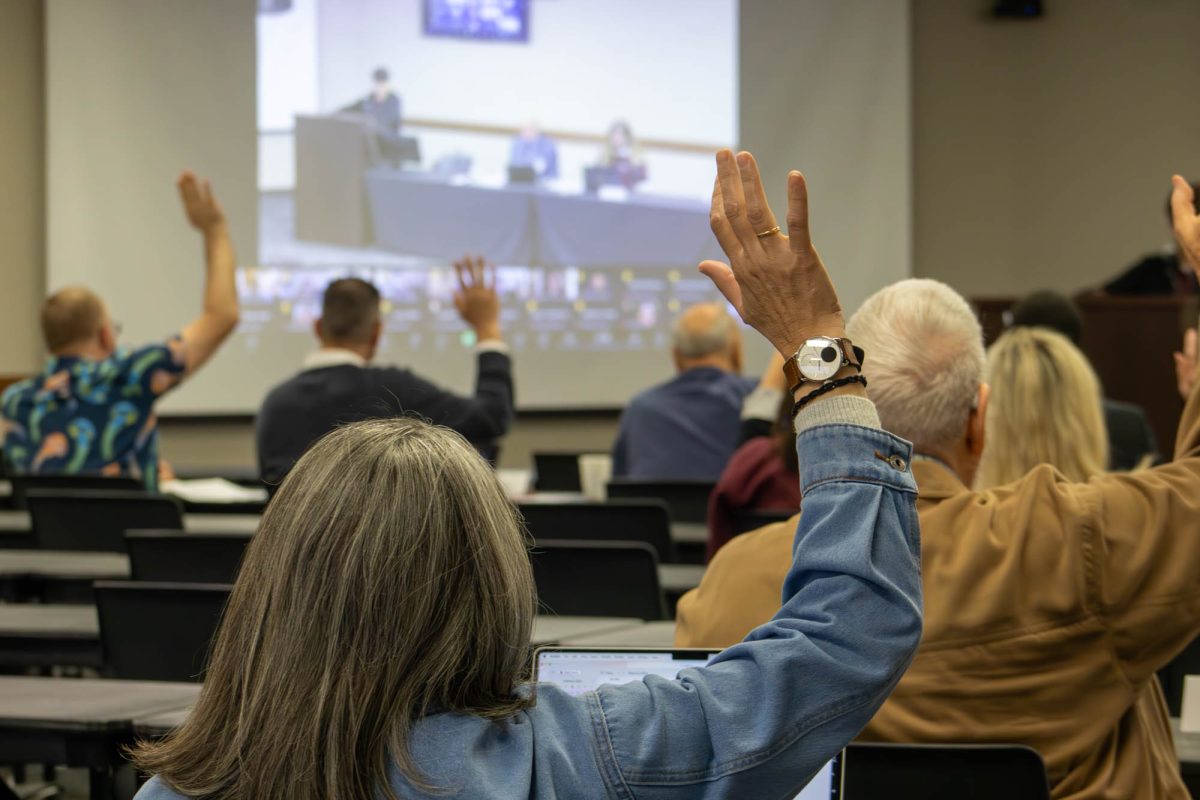On Tuesday night, Texas A&M hosted a spirited discussion on the use of covert action in the intelligence community, highlighting the different uses of it by the United States and other countries as well as its benefits, drawbacks, successes and failures.
The George H.W. Bush School of Government and Public Service, along with the Albritton Center for Grand Strategy, hosted Austin Carson, assistant professor at the University of Chicago and Lindsey O’Rourke, assistant professor at Boston College, for the event on covert action, featuring presentations about their research and a panel moderated by James Olson, a Bush School professor who served for over thirty years in the Central Intelligence Agency (CIA). O’Rourke, whose new book focuses on U.S. covert action to effect regime change in other countries, outlined the complexities inherent in covert operations and said secrecy of the operation can hinder its success, but enhancing the chances for success will take away from its secrecy – a catch-22 that many covert ops get caught up in.
“There is a fundamental tradeoff between size and secrecy when it comes to covert action,” O’Rourke said. “Overthrowing a state requires supporting a powerful opposition, but your covert operation can only become so large before your role becomes exposed.”
While O’Rourke’s research focuses on American covert action, Carson’s examines it by many different countries. He highlighted a point that he said was crucial yet under-recognized—that a country may discover covert action by its adversary, but choose not to reveal it for strategic reasons. The main example he gave for this was Soviet involvement during the Korean War, when Soviet fighter pilots secretly flew 90% of combat missions – and less than 1% were flown by the Koreans themselves.
“This information was too explosive to go public with; Truman was worried about looking too weak,” Carson said. “If it was known that American pilots were being killed on a regular basis by the Soviet Union, how do you not escalate the war beyond its current scale? The government’s desire for limited war led to keeping that information secret.”
Inevitably, the topic of whether covert action is appropriate and necessarily came up. Covert action is often a controversial topic, said Olson as a CIA veteran, but he feels strongly that is a necessary tool of the U.S government.
“I think there is a place for it, every President has used it and I think every President will,” Olson said. “It’s an opportunity for the President to get things done overseas without paying a political price for it.”
Haley Wilburn, Class of 2020 and a masters of international affairs student at the Bush School who attended the event, said she agrees with Olson.
“I still think covert action is a useful strategy,” she said “It has a purpose, but maybe it was used too broadly during the Cold War.”
From an academic side, O’Rourke said he believes that covert regime change is best used when another country’s population is in line with the United States and it can encourage a popular democratic movement—somewhat like the Solidarity movement in Poland. However, she stressed that overt methods are often more effective and seen as less suspicious. O’Rourke also identified the interventions in French, Italian and Japanese elections in the immediate aftermath of World War II as vital to prevent those strategically important countries from falling under Communist control, and as operations with a high likelihood of success because the population was largely on-side and the new government would be strongly allied with the United States.
While covert action is a controversial and much-discussed topic, one thing all the speakers highlighted was its legality and central place within America’s foreign policy toolbox.
“They’re done in a systematic and legal way, there’s a process which is followed very, very, closely,” Olson said. “It’s not just intelligence agencies or the military going off on their own, these actions are the official policy of the United States and approved by the President.”
Speakers discuss uses and effectiveness of covert action
November 20, 2019
Photo by Photo by Josh Sozio
Authors of “Secret Wars: Covert Conflict in International Politics” Lindsey O’Rourke (left) and Austin Carson (right) discuss covert operations with Bush School professor James Olsen (center).
0
Donate to The Battalion
$2790
$5000
Contributed
Our Goal
Your donation will support the student journalists of Texas A&M University - College Station. Your contribution will allow us to purchase equipment and cover our annual website hosting costs, in addition to paying freelance staffers for their work, travel costs for coverage and more!
More to Discover









